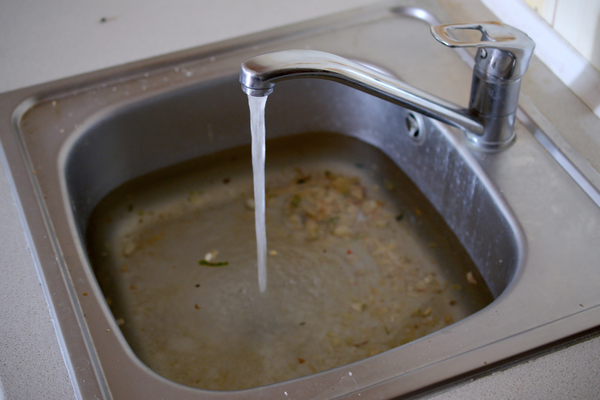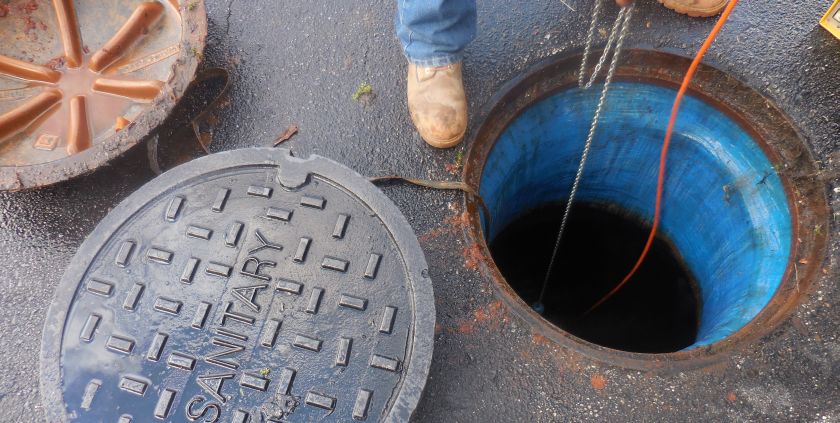Measures for Dealing with a Blocked Drain Prior to Reaching out to Plumbing Experts
Measures for Dealing with a Blocked Drain Prior to Reaching out to Plumbing Experts
Blog Article
Each person will have their unique piece of advice when it comes to 8 Tips For Clearing A Blocked Drain.

Intro
Managing an obstructed drainpipe can be a frustrating experience, interrupting day-to-day activities and potentially causing damages to your residential property. Nevertheless, before reaching out to pipes specialists, there are steps you can require to address the issue on your own. In this guide, we'll explore do it yourself options and preventive measures to take on a blocked drain properly.
Recognizing the Problem
The very first step in addressing a blocked drainpipe is acknowledging the indicators. Sluggish drain, gurgling noises, foul odors originating from drains, or water support up are common indications of an obstructed drainpipe. Identifying these indicators early can help protect against better difficulties.
Usual Causes of Blocked Drains
Understanding the variables that contribute to drain clogs is necessary for efficient resolution. Usual wrongdoers consist of hair, soap scum, grease, food debris, and foreign objects like sanitary products or paper towels. Tree roots invading underground pipelines can likewise create substantial blockages.
DIY Solutions
For minor obstructions, numerous do it yourself remedies can be reliable. Putting boiling thin down the drain can help dissolve oil and particles. Sodium bicarbonate and vinegar or a blend of salt and baking soda can work as all-natural cleaners. Using a bettor or pipes snake to displace blockages is one more option.
Devices and Devices
Having the right tools accessible can make DIY drainpipe cleaning up more reliable. A plunger is a functional tool for getting rid of blockages in sinks, commodes, and showers. A plumbing snake or auger can reach deeper clogs, while drainpipe cleansing chemicals can be used very carefully for stubborn clogs.
Safety nets
To avoid future blockages, embracing safety nets is crucial. Install drain guards or strainers to catch hair and debris before they go into the pipes. Consistently flush drains pipes with warm water to liquify oil build-up, and stay clear of dealing with grease or solid waste away.
When to Call a Specialist
While do it yourself options can fix minor blockages, particular indications suggest the need for specialist help. Consistent blockages, foul odors regardless of cleaning up efforts, or multiple drains backing up at the same time are red flags that require experienced intervention.
Picking the Right Plumbing Solution
When picking a pipes service, take into consideration factors such as experience, licensing, and client evaluations. Choose a respectable plumbing technician with a track record of top quality craftsmanship and transparent prices methods.
Expense Considerations
The price of specialist drainpipe cleaning services can vary relying on the severity of the clog and the plumber's prices. Demand quotes from multiple suppliers and ask about any type of additional charges to guarantee transparency and prevent shocks.
Safety Measures
When attempting do it yourself drainpipe cleansing, prioritize security. Put on protective handwear covers and glasses to stay clear of contact with unsafe chemicals or bacteria. Never ever mix various drain cleansing products, as this can produce harmful fumes.
Instance Researches
Real-life instances highlight the efficiency of do it yourself options and the value of prompt expert intervention in fixing drain clogs.
Verdict
By adhering to the ideas outlined in this guide, you can successfully tackle blocked drains pipes and stop future pipes problems. Whether selecting do it yourself remedies or looking for expert support, punctual action is essential to keeping a healthy and balanced plumbing system and maintaining the integrity of your home.
How to Clear a Clogged Drain Yourself (And When to Call In the Professionals)
What Can Clog a Drain
Dirt Skin flakes Hair Grease Soap scum Food Offset pipes Tree roots Small objects Mineral buildup DIY Tricks to Unclog a Drain
You can fix this! Once you have identified the source of the clog (or have a vague idea), you can try one or a combination of these fixes in order to clear your plumbing.
Wire Hanger or Snake
Untangle and clear out hair from a drainpipe with a homemade snake. Use a straightened-out wire hanger with a 90-degree angle hook to locate the clog and drag out any unwanted material.
Remember not to push the clog further down to where the wire hanger cannot reach! If you need to follow up with a plunger, give it a try. Your efforts might be more successful after it’s been wire-snaked.
If you want to get fancy and don’t have a wire hanger to spare, head to the store and pick up a hand-operated drain snake. You can get one for $10-$30. It may save you the hassle, and provide additional length to reach deep into the clogged pipe.
Plunger
A cup plunger has a suction cup attached to a wooden handle. The rubber creates a seal around the drain, and increases the pressure force of the plunger.
Plunge for 30-second increments to loosen the clog. This may need to be repeated over the course of 15-20 minutes. Once plunged, run the water to flush the remaining material out of the drain.
Remember– never use a plunger if you have used a chemical drain cleaner. These chemicals can splash up from the force of the plunger and cause serious injury or burns.
Boiling Water
Hot water can sometimes break up materials into a flushable amount. Dirt, grease, and soap buildup requires heat in order to unstick from surfaces.
Take your kitchen kettle and heat your water to a boil. Once it reaches a rolling boil, pour it directly down the drain into the blockage. Carefully follow with plunging, if necessary.
Don’t worry if this takes more than one try! It can often take multiple kettles and repeated plunging in order to clear a particularly stubborn clog.
Chemical Drain Cleaner
As a last resort, pick up a bottle of chemical drain cleaner. Drain-cleaning chemicals are potent, and not very good for the environment.
You may need to wear protective eyewear in gloves before handling your bottle of chemical drain cleaner. Follow the instructions printed on the bottle, and flush with water as soon as the instructions allow. Do not follow with plunging.
Baking Soda and Vinegar
As a safer alternative to chemical drain cleaner, baking soda and vinegar can create a chemical reaction that clears tough clogs.
Combine one cup of cleaning vinegar with one cup of boiling water, and set aside. Once you have done this, pour half a cup of baking soda down the drain. Give the baking thirty seconds to settle and cover a large portion of the problem drain.
Following the baking soda, pour down your vinegar and hot water solution. Once the vinegar and baking soda combine, the mixture will bubble and fix. Let this reaction fizzle in the drain for about an hour.
After an hour, follow with a kettle’s worth of hot water. The heat and liquid should flush out any remaining material.
When to Call a Plumber
If your DIY attempts haven’t cleared your clog drain, it’s time to call in a professional. It’s not worth losing access to your kitchen sink or high-traffic bathroom. A clog in a vital area can keep you from the things you’d rather be doing, and derail your routine.
Anytime a clog is causing water to spread is a time to call in a plumbing service. What starts out as a little bit of water can quickly grow into serious, expensive water damage.
Additionally, a serious clog can result in burst pipes or serious leaks. Make sure you know when to take it seriously!
https://myguysnow.com/how-to-clear-a-clogged-drain-yourself-and-when-to-call-in-the-professionals/

As an avid person who reads about , I think sharing that excerpt was a smart idea. For those who enjoyed our post kindly be sure to share it. I love your readership.
Book Service Report this page